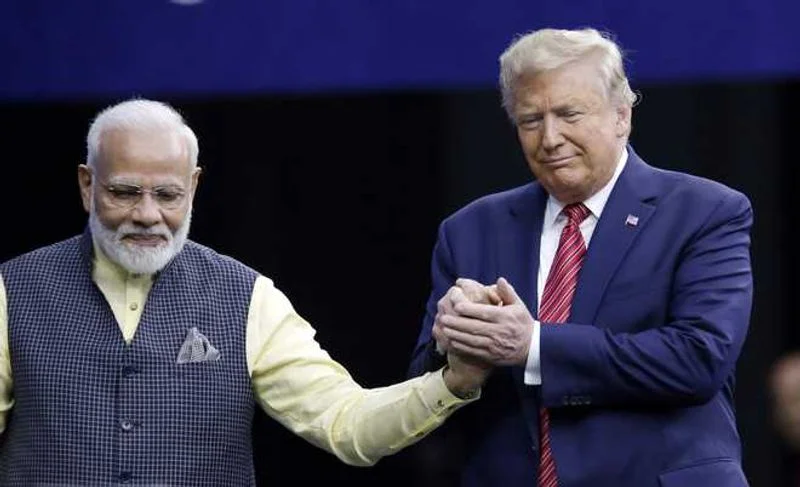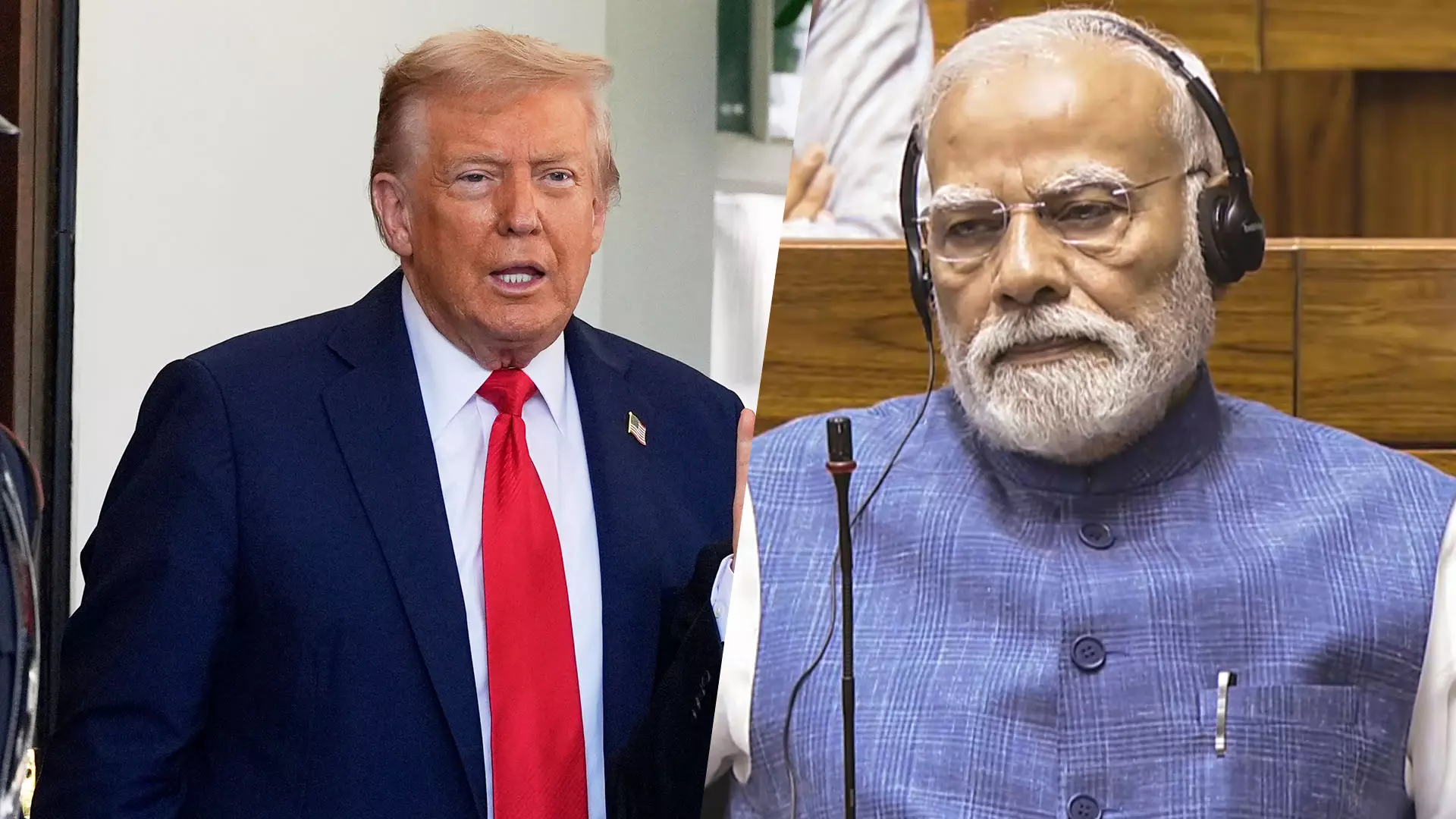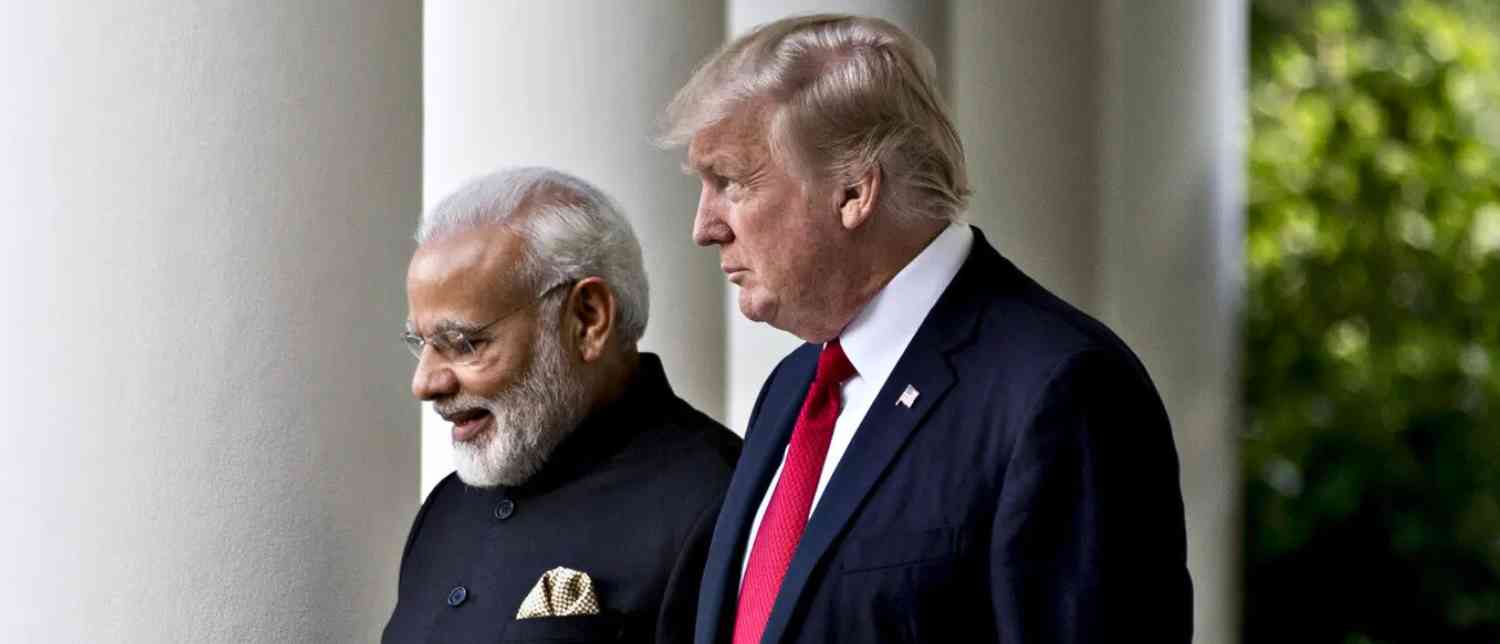The once-celebrated friendship between former U.S. President Donald Trump and Indian Prime Minister Narendra Modi no longer carries the same warmth, according to a former American official. Their bond was once marked by big public rallies, handshakes, and symbolic shows of unity, but experts now suggest that such “personal rapport” is fading.
_1757051916.jpg)
Trump and Modi were often seen as strong allies on the world stage. Events like the ‘Howdy Modi’ rally in Houston in 2019 and the ‘Namaste Trump’ gathering in Ahmedabad in 2020 turned their relationship into a spectacle, broadcast to the world. Both leaders praised each other openly, hailing their countries as natural partners and appearing more like friends than just fellow heads of state. For India, Trump was a leader who could help strengthen cooperation with Washington, especially as China’s presence in Asia grew. For Trump, Modi was a global ally who added color to his foreign policy image.
But beneath the hugs and applause, policy differences remained. Trump’s “America First” approach often created trade tensions with India. He pushed for tougher deals, while India held its ground on protecting its domestic interests. Still, both sides managed to keep working together on defense cooperation, energy supplies, and regional security — especially in the Indo-Pacific.

With the arrival of President Joe Biden, the tone of diplomacy shifted. Biden has preferred a quieter, more institutional approach, focusing on practical cooperation in areas such as defense technology, climate change, and digital partnerships. Instead of large public rallies, his meetings with Modi are based on structured agendas and policy goals. Observers say that while the warmth of the Trump-Modi friendship is absent, the U.S.-India relationship itself has actually become more steady, because it is now shaped less by personal chemistry and more by long-term strategy.
The ex-official’s remark that there is “no more personal rapport” highlights a bigger question about diplomacy: should ties between nations depend on leaders’ friendships? While personal bonds can create momentum, they do not always guarantee lasting agreements. For example, despite all the praise, Trump and Modi could not resolve trade disputes. Yet, even without the same grand displays of camaraderie, India-U.S. defense ties and technology partnerships have expanded under Biden.
Public opinion also reflects this shift. Many Indians continue to view the U.S. as an essential partner for growth, innovation, and security, regardless of who is in the White House. In America too, strategic circles see India as critical for balancing China in Asia. This suggests that the relationship rests on deeper interests, not just personal warmth.

The transition from showy friendship to issue-driven cooperation may actually be a sign of maturity. Politics is full of images and emotions, but strong international ties are built on institutions, shared concerns, and mutual benefits. The Modi-Trump bond made news, but the real test for India-U.S. relations lies in how solidly they cooperate on defense, global security, technology, and climate challenges in the years ahead.
The fading of personal rapport, then, does not signal an end but perhaps a new phase — one less glamorous, but potentially more sustainable.
With inputs from agencies
Image Source: Multiple agencies
© Copyright 2025. All Rights Reserved. Powered by Vygr Media.

























